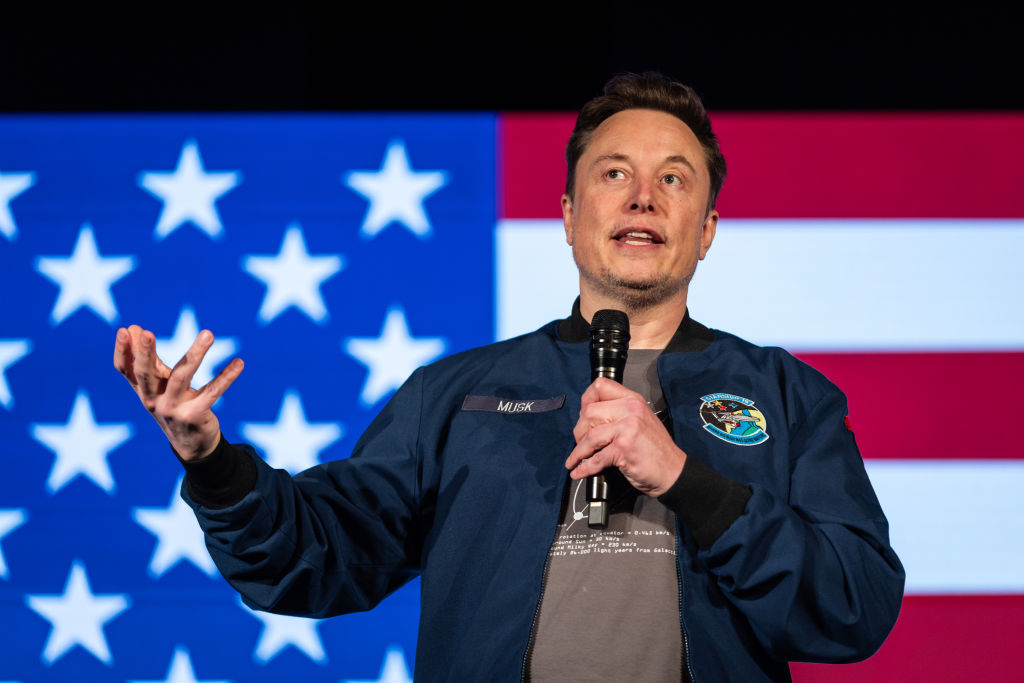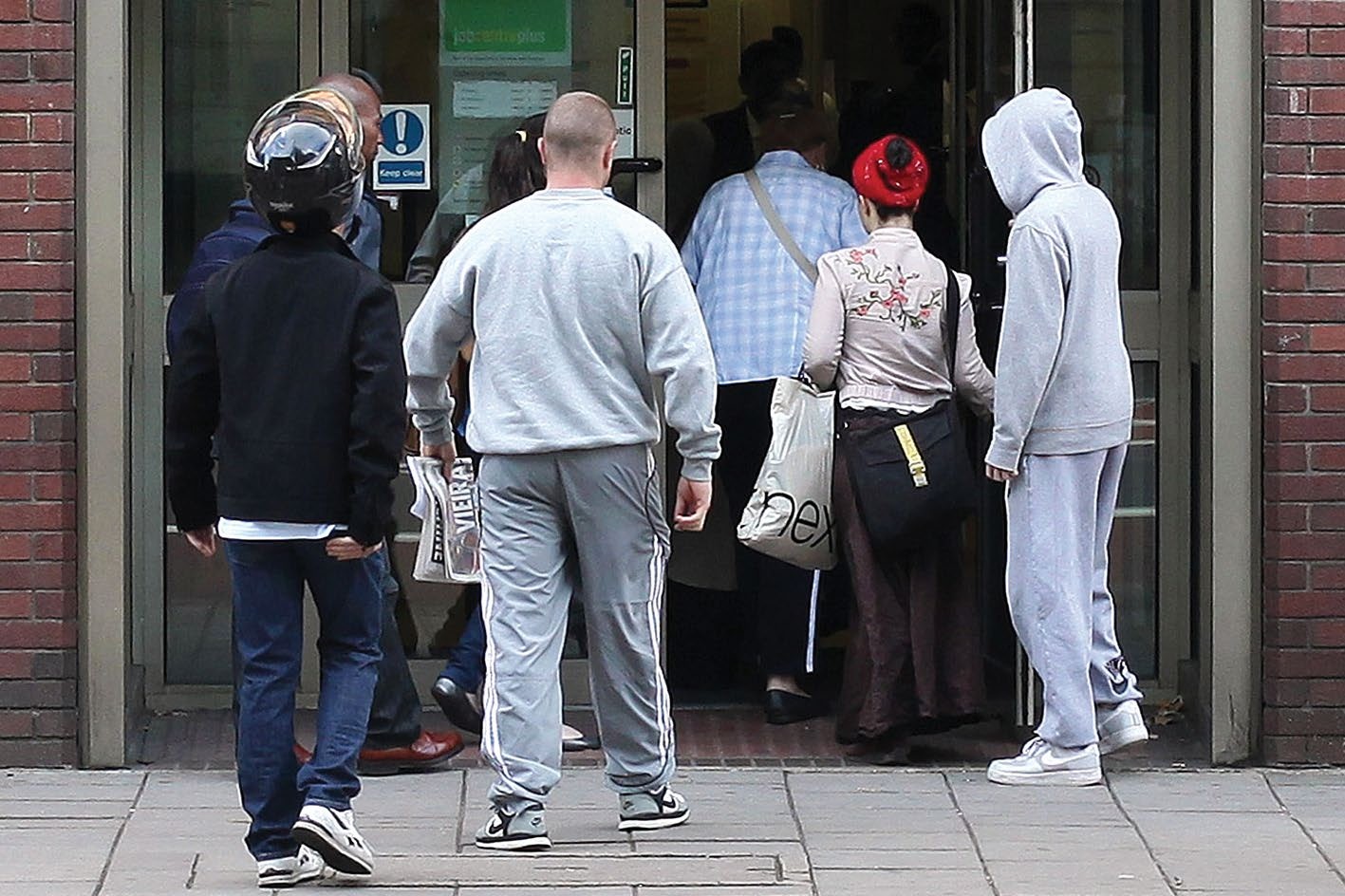Elon Musk enters the White House – what happens now?
Elon Musk has achieved the seemingly impossible many times before in the business world. But will he be able to cut the US government down to size?

Get the latest financial news, insights and expert analysis from our award-winning MoneyWeek team, to help you understand what really matters when it comes to your finances.
You are now subscribed
Your newsletter sign-up was successful
Want to add more newsletters?
As it became clear that Donald Trump was heading for victory, Elon Musk posted a mocked-up picture of himself carrying a sink into the Oval Office – an echo of the day he took control of Twitter, says Richard Waters in the Financial Times. “It was easy to conclude that he was overplaying his hand.” Not a bit of it. “Musk is on the verge of the ultimate disruption – the US government itself.” Even Trump was prepared to take a back seat to his “super-genius” accomplice – at least for a while. “A star is born: Elon!” he said in a lengthy shout-out to his biggest donor while claiming victory. Trumpologists were quick to note that Musk and his four-year-old son, X Æ A-Xii, were the only outsiders included in the triumphant family photograph.
Musk, 53, who spent an estimated $200 million to help get Trump elected, might well conclude his bet has paid off handsomely. Already worth some $260 billion, his fortune shot up by £20 billion in a day as Tesla shares surged. “Pundits promptly wondered whether the world’s richest man was on a path to becoming its first trillionaire,” says The Economist.
Still, the real change is his new political clout. Trump confirmed Musk will co-lead a new department giving him sweeping powers to “dismantle government bureaucracy” – in a have-cake-and-eat-it arrangement that will allow him to keep control of Tesla, X, SpaceX, xAI and his brain-chip company, Neuralink.
Try 6 free issues of MoneyWeek today
Get unparalleled financial insight, analysis and expert opinion you can profit from.

Sign up to Money Morning
Don't miss the latest investment and personal finances news, market analysis, plus money-saving tips with our free twice-daily newsletter
Don't miss the latest investment and personal finances news, market analysis, plus money-saving tips with our free twice-daily newsletter
Musk’s mischievous streak is already at play, says The Times. The new Department of Government Efficiency “shares an acronym” with his pet cryptocurrency, Doge. Its remit is to slash $2 trillion from government spending – a vast and some argue impossible task. But Musk is already flexing his influence in areas far beyond housekeeping, “even sitting in on the new president’s first phone calls with foreign leaders”. He has also already waded into US monetary policy, notes The New York Times – endorsing “a push to erode the Fed’s independence”.
During the course of his lengthy entrepreneurial career, South African-born Musk has been variously compared to Steve Jobs, Howard Hughes, Henry Ford and Bill Gates. None of these titans can really match his ambitions. Friends once described his internal narrative as going something like: “I’m going to take over the world. That’s going to be a super-crazy process.”
As with Trump, it’s hard to tell when Musk is being serious, says Fraser Nelson in The Telegraph. He once claimed his “finest piece of work” was fitting “a fart-sound button as standard in every Tesla”. Yet if anyone “can do the impossible and rewire US government”, it’s him. “The story of SpaceX and Tesla was about Musk “redefining what was possible” – it took a team of just 500 workers at SpaceX to send a privately-built rocket into orbit (Boeing’s equivalent division has 50,000 staff). But he succeeded by being “obsessed with process” – “marching round factories on a never-ending war against waste”.
Musk claims to have devised a formula for dissolving bureaucracy and sparking a new industrial revolution. But given the “legalistic weeds” he’ll face, “he may find it an easier task” to colonise Mars.
Are Elon Musk and Donald Trump headed for a fallout?
Musk could be “the breath of fresh air” the US government needs. But some worry about the conflicts of interest given Musk’s role in government, the boon he could grant to his own businesses and his cosy ties with autocratic regimes. “The merger of unrivalled power and wealth between two unashamed egomaniacs with boundless self-regard and scant respect for rules and regulations could go badly wrong” – if they don’t end up hating each other first. “The bromance has burned bright and fast.” Given Trump’s mercurial nature, and the sharp elbows of others in his court, “it could fizzle out just as quickly”.
This article was first published in MoneyWeek's magazine. Enjoy exclusive early access to news, opinion and analysis from our team of financial experts with a MoneyWeek subscription.
Get the latest financial news, insights and expert analysis from our award-winning MoneyWeek team, to help you understand what really matters when it comes to your finances.
Jane writes profiles for MoneyWeek and is city editor of The Week. A former British Society of Magazine Editors (BSME) editor of the year, she cut her teeth in journalism editing The Daily Telegraph’s Letters page and writing gossip for the London Evening Standard – while contributing to a kaleidoscopic range of business magazines including Personnel Today, Edge, Microscope, Computing, PC Business World, and Business & Finance.
-
 Three Indian stocks poised to profit
Three Indian stocks poised to profitIndian stocks are making waves. Here, professional investor Gaurav Narain of the India Capital Growth Fund highlights three of his favourites
-
 UK small-cap stocks ‘are ready to run’
UK small-cap stocks ‘are ready to run’Opinion UK small-cap stocks could be set for a multi-year bull market, with recent strong performance outstripping the large-cap indices
-
 UK small-cap stocks ‘are ready to run’
UK small-cap stocks ‘are ready to run’Opinion UK small-cap stocks could be set for a multi-year bull market, with recent strong performance outstripping the large-cap indices
-
 The scourge of youth unemployment in Britain
The scourge of youth unemployment in BritainYouth unemployment in Britain is the worst it’s been for more than a decade. Something dramatic seems to have changed in the labour markets. What is it?
-
 Anthropic’s Dario Amodei: The AI boss in a showdown with Trump
Anthropic’s Dario Amodei: The AI boss in a showdown with TrumpAnthropic’s CEO Dario Amodei was on an extraordinary upward trajectory when he found himself on the wrong side of the American president. He is about to be severely tested.
-
 The downfall of Peter Mandelson
The downfall of Peter MandelsonPeter Mandelson is used to penning resignation statements, but his latest might well be his last. He might even face time in prison.
-
 In defence of GDP, the much-maligned measure of growth
In defence of GDP, the much-maligned measure of growthGDP doesn’t measure what we should care about, say critics. Is that true?
-
 Reach for the stars to boost Britain's space industry
Reach for the stars to boost Britain's space industryopinion We can’t afford to neglect Britain's space industry. Unfortunately, the government is taking completely the wrong approach, says Matthew Lynn
-
 "Botched" Brexit: should Britain rejoin the EU?
"Botched" Brexit: should Britain rejoin the EU?Brexit did not go perfectly nor disastrously. It’s not worth continuing the fight over the issue, says Julian Jessop
-
 Ayatollah Ali Khamenei: Iran’s underestimated chief cleric
Ayatollah Ali Khamenei: Iran’s underestimated chief clericAyatollah Ali Khamenei is the Iranian regime’s great survivor portraying himself as a humble religious man while presiding over an international business empire